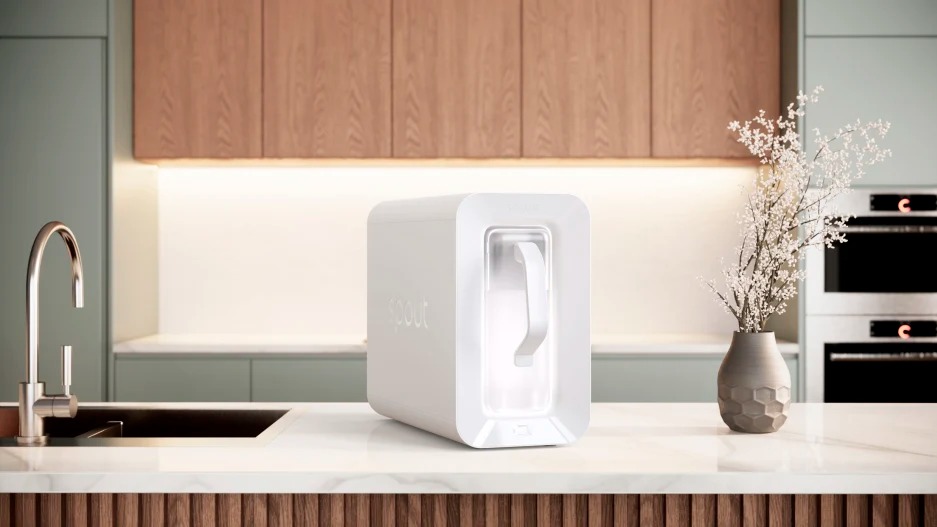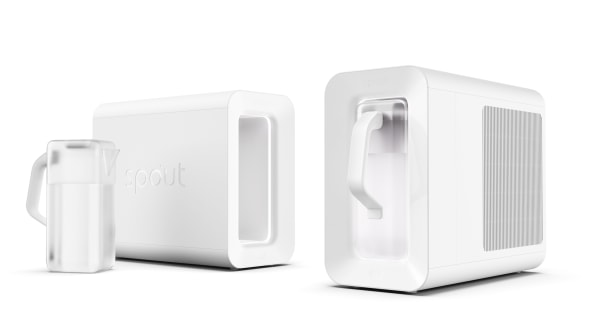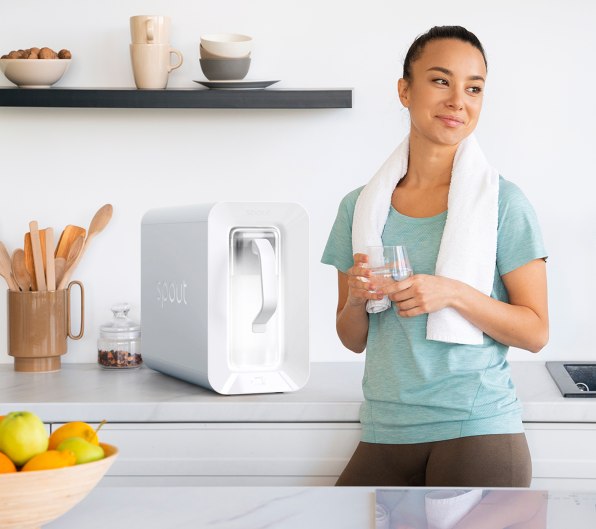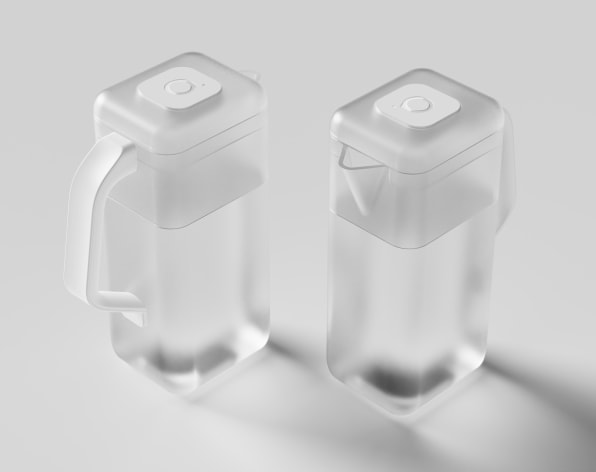- | 8:00 am
A countertop device that makes water from thin air
Spout is launching an atmospheric water generator, designed by Bould, that can produce two and a half gallons of potable water each day.

In much of the United States, it’s easy to take our drinking water for granted. But water scarcity due to droughts and climate change is increasingly a problem in North Amercia, and for many elsewhere around the world, accessing that basic human necessity has always posed a problem. A report by the World Meteorological Association found that 3.6 billion people had inconsistent access to water in 2018. The founders of Spout Ventures want to be a part of the solution.
Spout designs atmospheric water generators: machines that condense potable water from the humidity in the air around us. Today, they are launching their first consumer product: a generator small enough to fit on a countertop (8.5 inches wide, 19 inches deep, 15 inches tall) that requires no more input than a typical wall plug to operate. Every day, it can produce up to 2.5 gallons of water, and 80% of homes globally are in climates humid enough for the device to work, according to the company.

Cofounder Reuben Vollmer first started to realize the potential of atmospheric water when the ongoing drought in California led the state to threaten the water rights for his parent’s olive farm outside Los Angeles. Soon after, on a walk with his dog, he noticed dew collecting on grass and wondered whether the everyday phenomenon offered a solution to the inconsistent water access his parents, among others, faced.
After founding DewGood in 2014 to develop atmospheric water generators, Vollmer traveled widely to explore how people got their water. In Dubai, he saw empty five gallon drums piling up outside apartment buildings and knew a better solution had to exist; in Flint, Michigan, he spoke to families affected by the locally contaminated water. While DewGood’s efforts to launch a product failed, a lot people noticed the effort.

“I was getting messages from Spain, from Portugal, from Puerto Rico, Hawaii, Japan—all over the world,” Vollmer says. “People were saying, ‘Hey, we don’t have water . . . can we please get your machine?’ And so I saw that there was an intense global need for the technology.”
He founded Spout in 2019, alongside Tyler Breton, to focus on creating smaller, cheaper, and quieter versions of the hardware he’d spent years perfecting. In the Spout system, clay absorbs water from filtered air, which is then baked out by a heating coil that heats to around a thousand degrees Fahrenheit. Water vapor produced by the heat is condensed and filtered, minerals added to alkalize water (which naturally becomes acidic during condensation when it absorbs CO2 from the air). The alkalized water then collects in the appliance’s pitcher, where a UV light in the lid prevents bacterial growth.

Spout collaborated with Bould Design to create the unit. (Bould designed another innovative household appliance, the Nest Thermostat.) The launch model sells for $599, and the company estimates consumers will spend an additional $100 a year for filter replacements. Vollmer expects the product to attract people unsatisfied with the safety of their tap water and those who aren’t connected to the water grid, including people living out of vehicles and the 460,000 estimated households living in homes without plumbing.
He says the company is also working on solutions to other water access problems, particularly in agriculture, which currently accounts for about 70% of freshwater usage worldwide and in many regions is contending with severe drought conditions due to climate change.







































